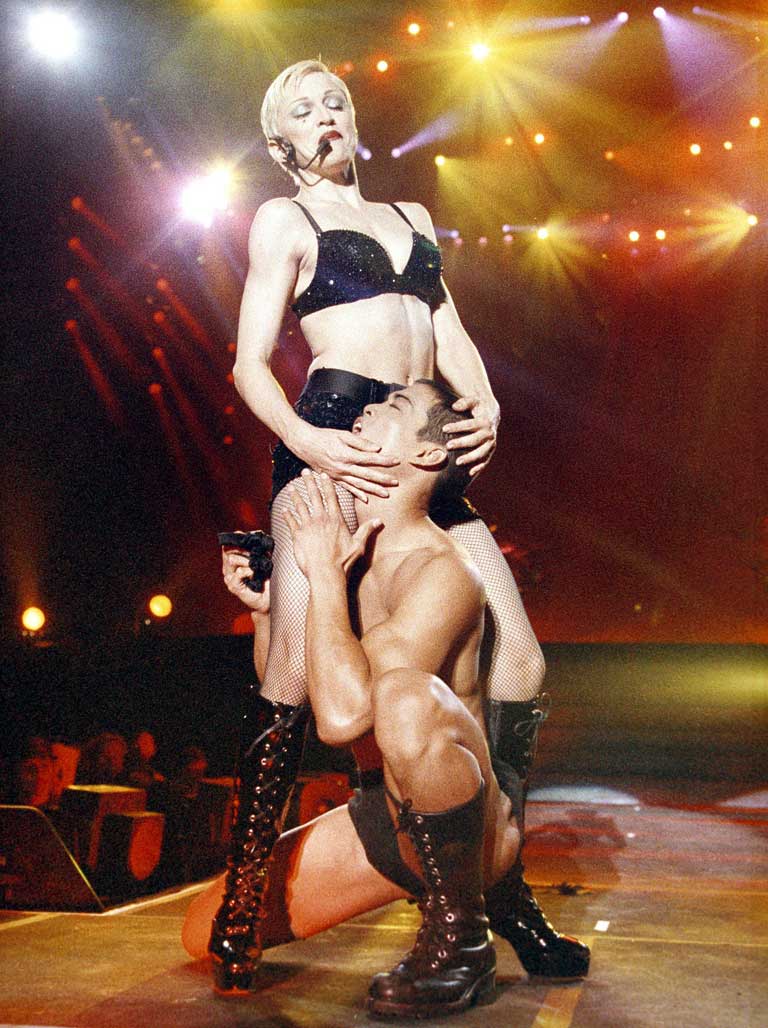How To Be Gay, By David M Halperin
This mammoth account of gay identity defers too much to the passing fads of pop culture

Thirty years ago, would-be disco diva Madonna found herself supporting the Village People, our first manufactured gay pop group. The idea entices: a female performer with nascent star quality performing as warm-up act for six hirsute, muscle-bound men, their homosexuality evident, their masculinity uncontested. Yet today we understand that the People were well past their "YMCA" prime and - predictable as Madonna's schtick was – the future belonged to her.
Buy this book from the Independent bookshop
This parable doesn't feature in David Halperin's mammoth study of the relationship between homosexuality and contemporary American culture, but could have. His subject is the enduring appeal of female (invariably deeply feminine) role models, forms of behaviour, dress and speech to gay men today, and the apparent rejection of the "liberated" models of gay culture which emerged in the 1970s. These men, Halperin claims, were supposedly reformed out of identifying with strong-but-vulnerable heroines. An assertive identity politics should have empowered them to be legitimised and assimilated. Yet instead, gay men have drawn back, culturally, from the opportunity afforded by social advances, in large number preferring still to co-opt feminine manners and affinities.
It's an arresting thesis, and Halperin has revealing insights. How to be Gay ranges spiritedly across broad terrain – from Edward Albee to Annie Proulx, from Desperate Housewives to La Cage aux Folles. Its author – Michigan's "WH Auden Distinguished University Professor of the History and Theory of Sexuality" – is deeply read. Yet ultimately, this behemoth of a book cannot fully convince. "Mother" Auden, moreover, would squirm.
It hardly helps that Halperin obsessively returns to the supposed impact of just two movies upon "gay culture", by which – however finessed – he means the majority of gay men. Mildred Pierce (1945) and Mommie Dearest (1981) are united by the figure of Joan Crawford: acting in one; impersonated in the other. Certainly, audiences at San Francisco's Castro Cinema still whoop at Faye Dunaway's camp struggle to embody Crawford's demonic authority over daughter Christina: "NO WIRE HANGERS, EVER!" Mildred Pierce is equally worth reading ingeniously - and Halperin does. But – like many overconfident American approximations of the post-structuralism of Roland Barthes or Michel Foucault – How to be Gay tries too hard and dares too much; insisting, when it cannot persuade.
Reflecting on his failure to excite even queer undergraduates about gay literary fiction, Halperin concludes that their distractedness betrayed indifference. But any tutor knows what it means to face an uninterested class. You devise superior methods of engagement. You instruct; you don't simply defer. In terms of evidence, a handful of feckless Midwestern teens can scarcely support a 500-page thesis.
It may be provocative to ask whether "The Golden Girls might still matter to us a lot more than Edmund White". But in what sense do cultural texts "matter"? The dominance of popular vehicles over others which bear more influence is scarcely news. Ben-Hur was the bestselling 19th-century American novel; Moby-Dick scarcely sold in the hundreds. Which one "matters"? By analogy, Halperin's consideration of ephemera like Lady Gaga's "Born this Way" may show its potency - for now. The tune has had a wide reach… but how much enduring significance? I longed for Halperin to address the still pertinent issues of cultural value and hierarchy.
As for anyone still worrying over the Village People-Madonna stand-off, there are surely alternatives to seeing gay men's identification with women and their sense of self-acceptance in strict opposition. What of fruitful exchange, or the likelihood that creativity can blur fixed sexual categories? Heterosexuals – Pat Barker, John Irving – have brilliantly imagined gay subjectivity. And, curiously, for those chiefly responsive to pop culture, "Like a Virgin at the YMCA" makes for a great mash-up.
Richard Canning's new edition of Ronald Firbank's 'Vainglory' is published by Penguin Classics
Join our commenting forum
Join thought-provoking conversations, follow other Independent readers and see their replies
Comments
Bookmark popover
Removed from bookmarks